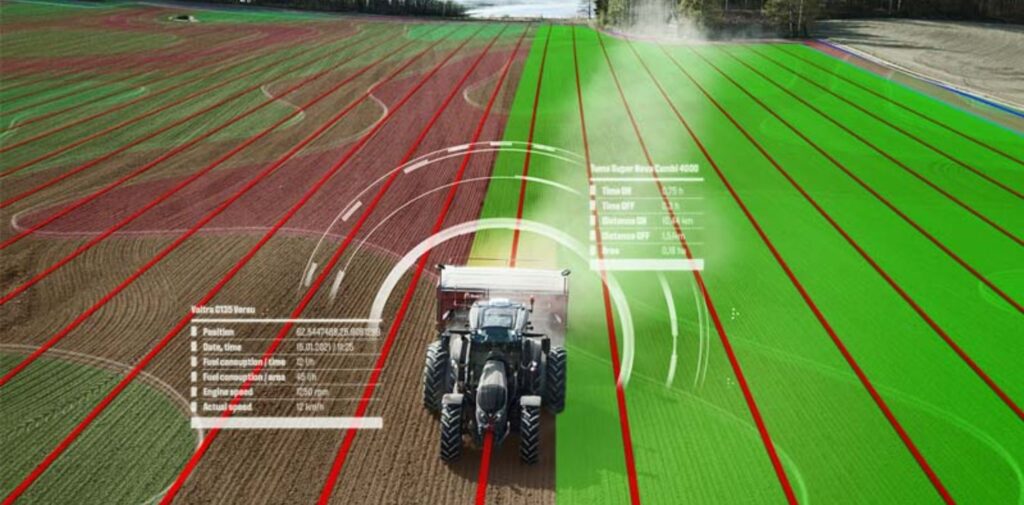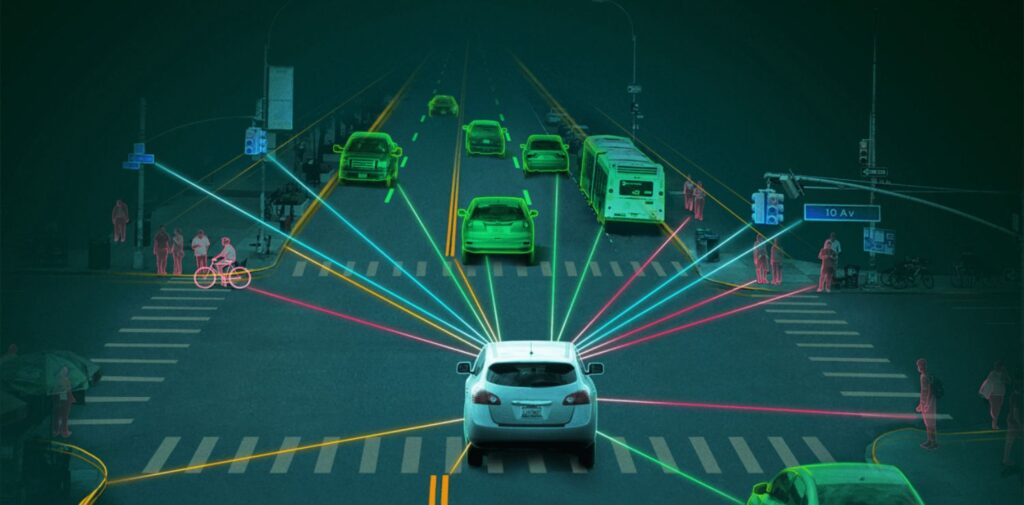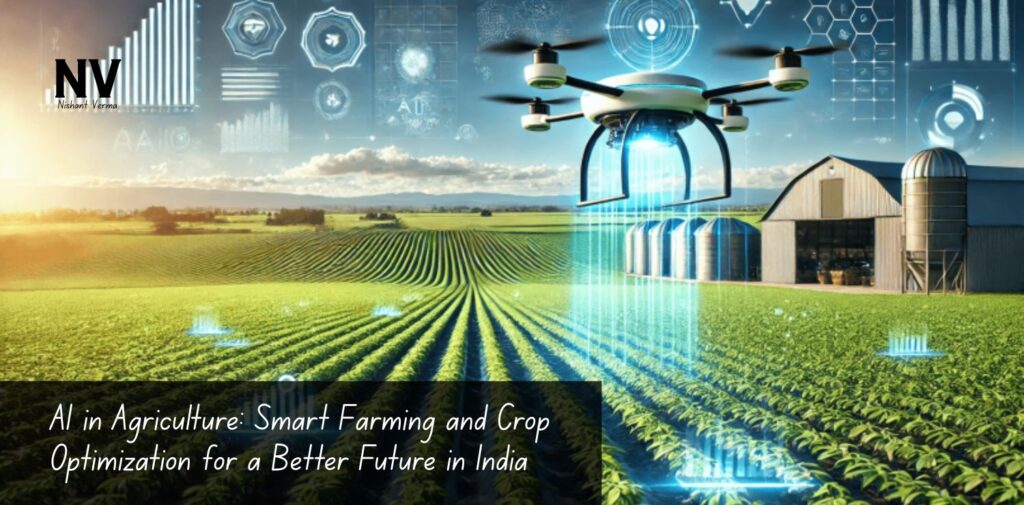Agriculture has been the backbone of India for centuries. It supports more than half of the Indian population directly or indirectly. But in recent times, farming has faced many challenges such as unpredictable weather, declining soil fertility, water shortages, and rising input costs. Farmers often struggle to get the right price for their produce and lack access to modern technology.
In this situation, Artificial Intelligence (AI) has emerged as a game-changer in agriculture. AI is helping farmers improve their productivity, save resources, and make better decisions. From predicting weather conditions to detecting crop diseases, AI is transforming traditional farming into smart farming.

What is Smart Farming and Why is it Important?
Smart farming is the use of modern technologies like AI, IoT (Internet of Things), data analytics, and sensors to make farming more efficient, productive, and sustainable. It helps farmers monitor crops, soil, and weather conditions in real-time, take accurate decisions, and reduce wastage.
In India, smart farming can play a big role in solving problems like overuse of fertilizers, low yield, poor market access, and lack of timely advice. With AI, even small and marginal farmers can benefit from personalized recommendations, early warnings, and automation tools that were earlier available only to large-scale farms.
How AI is Helping in Crop Monitoring and Disease Detection
One of the most useful applications of AI in farming is crop monitoring. With the help of satellite images, drones, and AI-powered mobile apps, farmers can now keep a close eye on their fields. These tools can detect early signs of crop stress, pest attacks, or nutrient deficiency.
For example, if a plant is showing signs of disease, AI systems can analyze images of leaves and tell the farmer what kind of disease it is, how serious it is, and what treatment is needed. This helps in early treatment and prevents large-scale damage to the crop. Companies in India like CropIn, Fasal, and DeHaat are already offering these AI-based solutions to farmers.
Soil Health Management and Precision Agriculture
Healthy soil is the foundation of good farming. But due to excessive use of chemical fertilizers and poor farming practices, soil quality in many parts of India has degraded. AI can help in analyzing soil data and giving precise recommendations for improving soil health.
Precision agriculture uses AI along with sensors and GPS technology to apply the right amount of water, fertilizer, and pesticide at the right place and time. This avoids wastage and saves money. For example, if one part of a field needs more water and another part doesn’t, the system will automatically adjust the irrigation. This kind of smart irrigation system is already being used in states like Punjab and Maharashtra.

AI-Powered Weather Forecasting and Crop Planning
Indian farmers are heavily dependent on the monsoon, and changes in weather can directly impact their income. AI can analyze large amounts of weather data and provide accurate short-term and long-term forecasts. This helps farmers decide when to sow, irrigate, or harvest their crops.
AI can also suggest which crop to grow based on weather patterns, soil type, and market demand. This reduces the risk of crop failure and helps in better crop rotation. For instance, if the system predicts a dry season, it may recommend drought-resistant crops. Similarly, it can warn about the possibility of a flood or storm, giving farmers enough time to prepare.
Improving Market Access and Reducing Wastage
One of the biggest challenges for Indian farmers is getting the right price for their produce. Many farmers are forced to sell at low prices due to lack of market knowledge or storage facilities. AI can help solve this problem too.
AI-powered platforms can predict market trends, price fluctuations, and suggest the best time to sell the produce. They can also connect farmers directly with buyers, reducing the role of middlemen. Some startups in India are using AI to link farmers with cold storage units and transport systems, reducing post-harvest losses and ensuring better returns.
Empowering Small Farmers with AI and Mobile Technology
In India, most farmers own small plots of land and cannot afford expensive machines or tools. But AI is now becoming accessible through smartphones. There are mobile apps that provide AI-based crop advice in regional languages, voice-based queries, and even chatbot support.
These apps help farmers in getting weather updates, expert suggestions, government schemes, and even loans or insurance details. For example, Kisan Suvidha, AgriApp, and BharatAgri are some platforms that offer such services. This kind of digital empowerment is bringing a silent revolution in rural India.

Challenges and the Road Ahead
While AI in agriculture has great potential, there are also some challenges. Lack of digital literacy, poor internet connectivity in rural areas, and high initial costs can slow down the adoption of AI tools. Moreover, many farmers are still not aware of how AI can help them.
To overcome these issues, the government, private companies, and NGOs need to work together. Training programs, financial support, and awareness campaigns can help farmers understand and adopt AI-based farming techniques. Also, there should be a strong focus on creating user-friendly tools in local languages that can work even in low-connectivity areas.
Conclusion: A New Dawn for Indian Agriculture
AI is not just a luxury for rich countries – it can be a lifeline for Indian farmers. With the right support and awareness, even a small farmer in a remote village can use AI to make better decisions, increase income, and reduce stress.
Smart farming is the future of Indian agriculture. By using AI for crop optimization, soil management, weather prediction, and market access, we can make farming more sustainable and rewarding. As more farmers embrace technology, India can move closer to achieving food security, better rural livelihoods, and a stronger economy.
The journey has already started – now it’s time to speed up the adoption and ensure that every farmer in India becomes a smart farmer.




